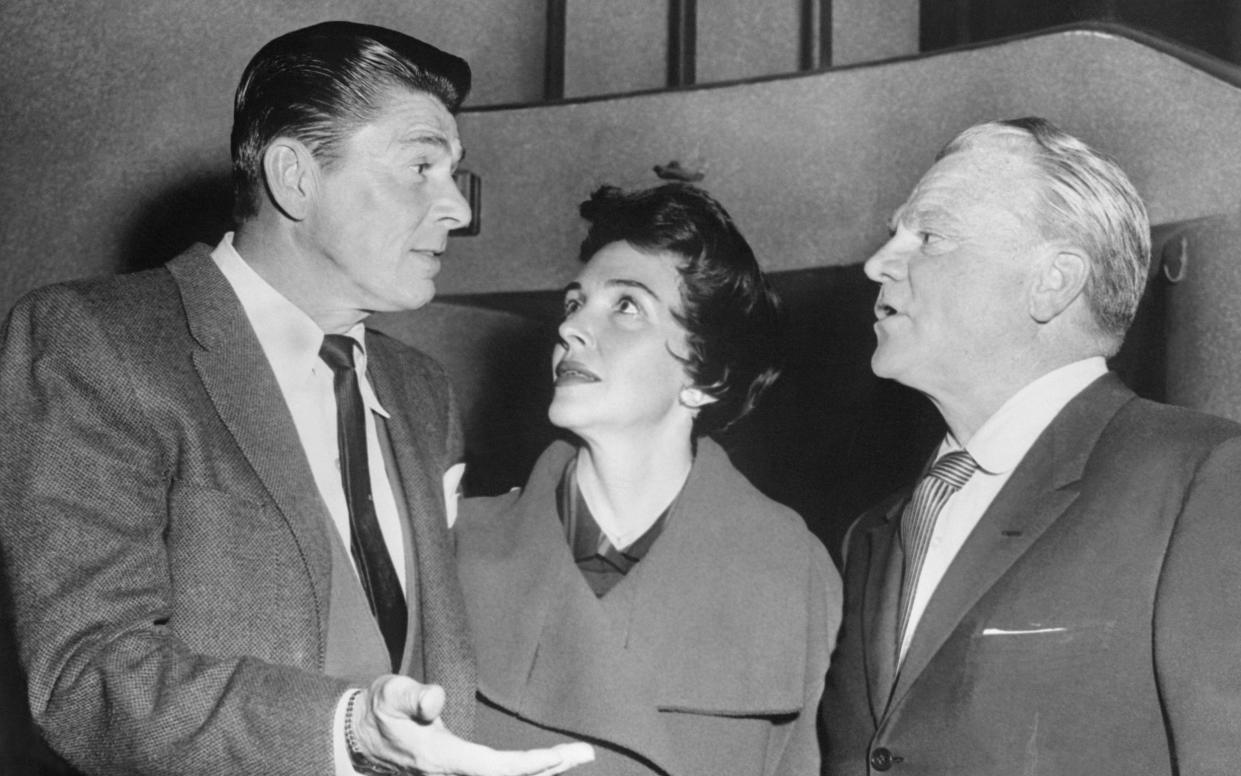Ronald Reagan, pension plans and the curse of TV: what we can learn from the 1960 actors' strike

The current strike by SAG (the Screen Actors Guild) and the Writers Guild of America (WGA) is an obvious blow to Hollywood’s film and TV industries, which are still recovering from the one-two punch of Covid-induced delays and audiences being more cautious about returning to cinemas. Yet it is worth noting that we have been here before. In 1960, both SAG and the WGA went on a strike that lasted five months.
On January 16 that year, Hollywood’s writers decided that they were fed up with the industry’s greatest threat to their livelihood: television. They demanded, and eventually received, increased payments when their films were broadcast on the new medium, but they would be joined on strike on March 7 by SAG, led by none other than the future US President Ronald Reagan, who was then best known as an actor in such pictures as Bedtime for Bonzo and The Winning Team.
The actors were of one accord with the writers that television represented a new and dangerous threat to their livelihood, not least because studios had sold or licensed their existing pictures to international TV stations without bothering to pay any royalties to any of the actors involved. After all, their logic ran, the performers had already been paid for their time and efforts; why did they deserve any more money? This is not so very different from today; contemporary actors and writers are united in anger towards streaming services, which they believe are benefitting from their work but are refusing to offer residual payments of the kind that they have previously negotiated. Once again, creativity is pitted against commerce, or David against Goliath.
Yet just as now, the industry also faced an existential crisis. In the years after the Second World War, attendance at the cinema had more than halved, with the 90 million Americans who went to the cinema each week in 1946 turning into a mere 40 million by 1960. Despite the best efforts of studios to immerse themselves in crowd-pleasing attractions, including epic films like Ben-Hur and Spartacus, and the launch of 3-D pictures – with varied degrees of success, both artistically and commercially – many people preferred simply to stay at home: little has changed over the past 63 years.

As soon as the strike was announced, studios found their pictures disrupted; such films as Elizabeth Taylor’s Butterfield 8 and Marilyn Monroe’s Let’s Make Love stopped filming altogether, with nobody knowing if – or when – they would resume production. Given how much shorter schedules were in 1960, when it was common for a film to begin shooting and to be released in less than a year, this represented a catastrophic threat to the very existence of the industry. Without new films being made and released, there was no backlog of “product” to be shown to audiences; in a matter of months, even weeks, the film business could simply have collapsed altogether without the prospect of making money.
The actors, under Reagan’s leadership, eventually went on strike for five weeks, resolving terms on April 18. The eventual deal agreed was that actors would receive residual payments for any film that went into production after January 31 1960, but that all performers who had appeared in a picture made between August 1948 and January 1960 would receive a share of a fund that the studios offered, the so-called “Pension and Welfare Plan”; this was a total of $2.65 million, rather less than the $4 million originally asked for. And if an actor had appeared in a film made before 1948, there would be no additional royalties or payments: a direct consequence of another deal made in 1951, again under the leadership of Reagan, that forfeited all royalties on earlier films in exchange for negotiations on payments for later films.
It was largely because of Reagan’s lacklustre negotiating powers on both occasions that the studios were able to hold the actors over the proverbial barrel, but the future president succeeded in selling the deal to his colleagues, who voted by 6,399 to 259 votes to accept it and return to work. Yet there was residual bad feeling amongst many of the members of SAG that they had been sold a dud. It has subsequently been suggested that Reagan’s powerful agent, Lew Wasserman, who was also the president of the Music Company of America, offered him a Faustian pact of sorts; get the actors back to work, on any terms, and he would be richly rewarded. It is surely no coincidence that Reagan shortly afterwards was offered a lucrative production deal with MCA, making him a very rich man.
Others were unimpressed by Reagan. Mickey Rooney launched an unsuccessful lawsuit in 1981, backed by many veteran actors, in order to obtain increased residual payments for earlier films he had made, and he commented to the industry title Drama-Logue that “What I’m angry about and will always be angry about is the terrible blow actors were dealt when our supposed union negotiated our rights away from receiving monetary compensation for all the work done before 1960. Why didn’t the union protect us? Ted Turner [who had founded the broadcasting conglomerate Turner Broadcasting System in the early 1970s] gets the money and the performers get an actors’ home to get sick and die in.”

The Maverick star James Garner, meanwhile, wrote in his 2011 autobiography The Garner Files that “The only thing I remember is that Ronnie never had an original thought and that we had to tell him what to say. That’s no way to run a union, let alone a state or a country.”
Yet through a combination of charm and strongarming – as well, perhaps, as protecting his own interests – Reagan succeeded in obtaining a deal of sorts, and the actors went back to their work; they would be joined by the writers on June 12 1960, who were generally felt to have obtained a more successful settlement. Reagan resigned from the SAG presidency in June of that year, with greater ambitions in mind than negotiating on behalf of actors: these would be realised when he became President on January 20 1981.
It remains uncertain as to how the contemporary WGA and SAG strikes will be settled; writers have been off work since May 2 this year, and there seem to be no clear signs of resolution. Yet as audiences enjoy the likes of Oppenheimer and Barbie this summer, they should know that there will be panicking studios who look back at the precedents set in 1960, and hope that someone like Reagan is able to strike a deal with actors that ends up helping their interests, whether through incompetence or bad faith, rather than those of SAG. Otherwise, with more committed participants, the outcome is likely to be one that benefits actors and writers, rather than executives.


